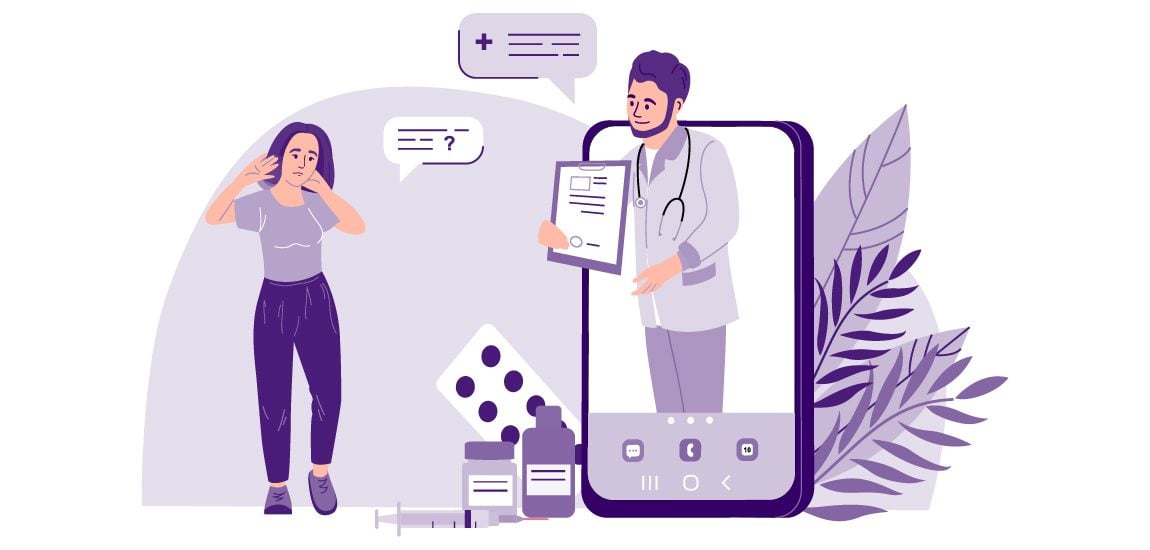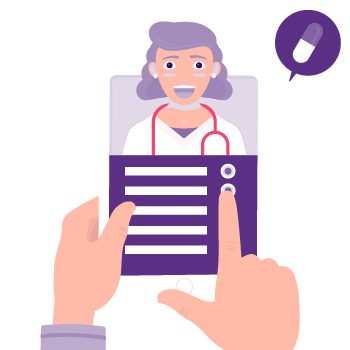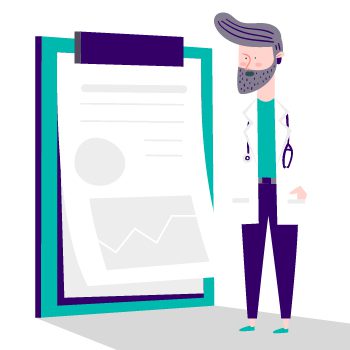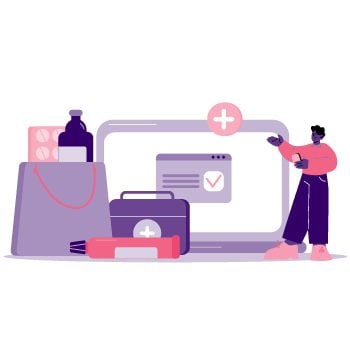
The Ultimate Checklist for Top-Quality Pharma Translation Services
The importance of accurate pharma translation services
Accurate pharma translation services ensure crucial information is communicated across different languages and cultures.
Pharmaceutical companies rely on accurate translations, including clinical trial documentation, marketing materials, regulatory compliance, and drug manufacturing instructions. The consequences of inaccurate translations can be severe, ranging from miscommunication between healthcare professionals and patients to costly delays in getting products to market.
To ensure accuracy, working with professional translators with expertise in the pharmaceutical industry is crucial. These translators should be fluent in the target language and deeply understand technical documents and regulatory standards. It is also beneficial to work with translators who are native speakers of the target language, as they better grasp cultural nuances and idiomatic expressions.
Investing in quality translation services can help pharmaceutical companies confidently expand into foreign markets, navigate complex regulatory requirements, and effectively communicate with healthcare professionals and patients. By prioritizing accuracy in pharma translation, companies can avoid costly mistakes and ensure the safety and efficacy of their products in global markets.


Qualifications to look for in a pharmaceutical translator
There are specific qualifications you should look for to ensure the highest quality of translation. First and foremost, the translator should have expertise in the pharmaceutical industry. They should be familiar with the terminology, technical documents, and regulatory standards specific to the field. This ensures they can accurately translate complex medical information without losing meaning.
Additionally, it is essential to choose a translator experienced in translating for the specific type of pharmaceutical product or medical device you are working with. For example, if you translate documentation for a new drug, you should seek a translator with experience. This will ensure they deeply understand the subject matter and can accurately convey its nuances in the target language.
Another crucial qualification is proficiency in both the source and target languages. A skilled medical translator should be fluent in both languages and fully grasp grammar, syntax, and vocabulary. They should also be able to effectively convey the intended message and tone of the original text in the translation.
Lastly, choosing a translator familiar with the target language’s cultural nuances and idiomatic expressions is beneficial. This will help ensure the translation resonates with the target audience and effectively communicates the intended message.
When seeking a pharmaceutical translator, qualifications to look for include experience as a project manager in a translation agency, proficiency in the source language prevalent in the medical industry, and a successful track record in providing human translation services for life science companies, particularly in medical devices and pharmaceutical translation projects.
The translator should be adept at overcoming language barriers and ensuring accurate and culturally sensitive translations for a wider audience. Familiarity with the clinical trial process and regulatory submissions is crucial, as well as a demonstrated ability to deliver high-quality medical translations, drawing on expertise from previous translations within a wide range of pharmaceutical and clinical contexts.
Collaborating with language service providers specializing in clinical trial translation services enhances the efficiency and precision needed in the pharmaceutical translation landscape.
By selecting a pharmaceutical translator with these qualifications, you can have confidence that your translations will be accurate, reliable, and of the highest quality.
Selecting Pharma Translation Services: Key Considerations to Keep in Mind
Several key considerations must be remembered regarding technical translations in the pharmaceutical industry. First and foremost, it is crucial to work with a reputable and experienced provider of pharmaceutical translation services. The technical nature of pharmaceutical documents requires high expertise and precision in translation. By partnering with an expert translator, you can ensure that complex medical information is accurately and effectively conveyed in the target language.
Another important consideration is the need for confidentiality and data security. Pharmaceutical documents often contain sensitive and proprietary information that must be handled carefully. When selecting a translation service, inquire about their data security protocols and confidentiality measures to protect your valuable information.
Furthermore, the pharmaceutical industry is highly regulated, and translations must adhere to strict regulatory standards. Working with a translator who is well-versed in these regulations and can ensure compliance with their translations is essential.
Lastly, consider the importance of maintaining consistency in terminology and style throughout your translated documents. This is particularly important for technical translations in the pharmaceutical industry, where accuracy and precision are paramount. Look for a translator with a proven track record of maintaining consistency in their work and using appropriate tools and resources to support this.
Considering these factors and selecting a trusted provider of pharmaceutical translation services, you can ensure that your technical translations are accurate, reliable, and meet the highest industry standards.
Read more about still reliable human translations.


The role of regulatory compliance in pharma translation
Regulatory compliance plays a crucial role in pharma translation. The pharmaceutical industry is highly regulated, with strict guidelines and standards for product development and distribution. This includes translating essential documents such as clinical trial results, drug labeling, and packaging information. When it comes to pharma translation, accuracy and consistency are key.
Translations must not only be linguistically correct, but they must also adhere to specific regulatory requirements in each target market. Translators must deeply understand the regulatory landscape in both the source and target countries.
Additionally, regulatory bodies often require translated documents to be submitted for review and approval. Any errors or inconsistencies in the translation can lead to delays in the approval process, potentially impacting the timeline for product launch. By working with translators with experience in regulatory compliance, pharmaceutical companies can ensure that their translations meet all requirements and avoid any regulatory roadblocks.
Furthermore, regulatory compliance extends to data security and confidentiality. Pharmaceutical companies must ensure that sensitive information is protected throughout the translation process. This includes taking appropriate measures to secure data during translation, storage, and transmission.
By considering the role of regulatory compliance in pharma translation and selecting a provider who understands and prioritizes these requirements, pharmaceutical companies can ensure that their translations are accurate, compliant, and meet all necessary regulatory standards.
Tips for ensuring successful pharma translation projects
First and foremost, it is crucial to establish clear and open lines of communication with your chosen translation service provider. This includes providing them with all relevant information about your project, such as the target audience, intended purpose, and any specific terminology or requirements.
Regular communication throughout the translation process can help address any questions or concerns and ensure the final translations meet your expectations. Another important tip is to plan and allow sufficient time for the translation process. Rushing through translations can lead to errors and inaccuracies. By providing your chosen translation service provider ample time to complete the project, you can ensure they have enough time to research and translate the content correctly.
When undertaking pharma translation projects in Spanish, it is crucial to engage a native translator with expertise in medical and pharmaceutical fields to ensure accurate and culturally relevant translations of official medical documents, clinical documents, user manuals, and report forms. Considering the digital economy’s impact on healthcare fields, understanding Internet user penetration is essential for reaching a wider audience.
Incorporating tips for successful pharma translation projects involves aligning the translation process with the regulatory standards of the largest economies and staying abreast of advancements in the pharmaceutical industry to deliver precise and effective translations in the dynamic and evolving medical and pharmaceutical expertise landscape.
Working closely with your translation service provider to establish a clear and consistent terminology and style guide is also beneficial. This will help maintain consistency in your translations and ensure the final product is cohesive and professional. Providing reference materials and glossaries can also help guide the translation process and ensure accurate and consistent terminology usage.
Lastly, it is essential to review and proofread the final translations thoroughly before using them. This includes checking for any grammatical errors, inaccuracies, or formatting issues. Reviewing the translations ensures they are of the highest quality and meet your requirements.
You can ensure the success of your pharma translation projects and achieve accurate and reliable translations that effectively communicate your message to your target audience.
The Benefits of Using Translation Technology in Pharma Projects
Translation technology has revolutionized the pharma industry by making translation processes faster, more efficient, and more accurate. Using translation technology in pharma projects offers many benefits that can significantly enhance translation.
One significant benefit is improved consistency. Translation memory tools can store previously translated content, allowing translators to access and reuse translations for repetitive or similar content easily. This ensures consistent terminology and style throughout the translated documents, creating a cohesive and professional end product.
Translation technology, including machine translation and post-editing, speeds up translation and is particularly beneficial in medical fields. Focusing on biological processes, this approach enables translators to efficiently handle large volumes of text, leveraging technology’s annual growth rate to translate content quickly and cost-effectively. Translators can dedicate their time and energy to editing and refining machine-generated translations, ensuring accuracy and quality in the specialized domain of medical translation.
Another advantage of using translation technology is accuracy. Translation memory tools and terminology management systems help maintain accuracy by storing and organizing approved translations and terminology. This reduces the risk of errors or inconsistencies, ensuring that translations are reliable and meet the highest quality standards.
Additionally, translation technology enhances collaboration between translators and clients. Cloud-based translation platforms allow for seamless communication and real-time updates, enabling translators and clients to work together efficiently. This promotes transparency and ensures that the translation project stays on track.
Overall, the benefits of using translation technology in pharmaceutical projects are undeniable. From improved consistency and faster turnaround times to enhanced accuracy and collaboration, incorporating translation technology can streamline the translation process and deliver high-quality translations that meet the pharmaceutical industry’s specific needs.
FAQ’S
What should be considered when choosing pharma translation services?
Consider factors like the provider’s expertise in pharmaceutical terminology, adherence to regulatory standards, qualified translators, data security, and experience in the industry.
How important is accuracy in pharma translation?
Accuracy is paramount in pharma translation. A minor error can lead to severe consequences, affecting patient health and regulatory compliance.
Are certified translators necessary for pharma translation?
Yes, certified translators are essential for pharma translation. They have the expertise to handle complex medical terminology accurately.
What regulatory standards should pharma translation adhere to?
Pharma translation should adhere to regulations like Good Manufacturing Practice (GMP), Good Clinical Practice (GCP), and other relevant standards based on the target market.
Is confidentiality crucial in pharma translation services?
Absolutely. Pharma translation involves sensitive data. Ensure the provider has robust confidentiality protocols to protect your information.


Sorry, the comment form is closed at this time.